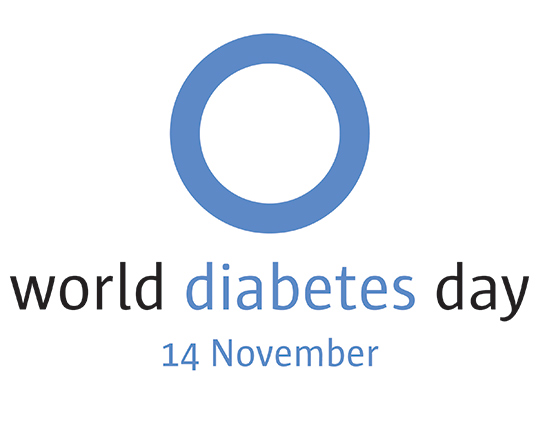World Diabetes Day 2017 – Women and Diabetes

November 14, 2017 – The World Diabetes Day 2017 campaign will promote the importance of affordable and equitable access for all women at risk for or living with diabetes to the essential diabetes medicines and technologies, selfmanagement education and information they require to achieve optimal diabetes outcomes and strengthen their capacity to prevent type 2 diabetes.
There are currently over 199 million women living with diabetes and this total is projected to increase to 313 million by 2040. Gender roles and power dynamics
influence vulnerability to diabetes, affect access to health services and health seeking behavior for women, and amplify the impact of diabetes on women.
Diabetes is the ninth leading cause of death in women globally, causing 2.1 million deaths each year. As a result of socioeconomic conditions, girls and women with diabetes experience barriers in accessing cost-effective diabetes prevention, early detection, diagnosis, treatment and care, particularly in developing
countries. Socioeconomic inequalities expose women to the main risk factors of diabetes, including poor diet and nutrition, physical inactivity, tobacco
consumption and harmful use of alcohol.
Two out of every five women with diabetes are of reproductive age, accounting for over 60 million women worldwide. Women with diabetes have more difficulty conceiving and may have poor pregnancy outcomes. Without pre-conception planning, type 1 and type 2 diabetes can result in a significantly higher risk of maternal and child mortality and morbidity.
Approximately one in seven births is affected by gestational diabetes (GDM), a severe and neglected threat to maternal and child health. Many women with GDM
experience pregnancy related complications including high blood pressure, large birth weight babies and obstructed labour. A significant number of women with GDM also go on to develop type 2 diabetes resulting in further healthcare complications and costs.
Stigmatisation and discrimination faced by people with diabetes are particularly pronounced for girls and women, who carry a double burden of discrimination
because of their health status and the inequalities perpetrated in male dominated societies. These inequalities can discourage girls and women from seeking diagnosis and treatment, preventing them from achieving positive health outcomes.
***
For more detail on the World Diabetes Day, visit www.worlddiabetesday.org
Are you at risk of having pre-diabetes or type 2 diabetes? Take the test at www.healthycanadians.gc.ca/en/canrisk
For more information on the services offered at the CSCE Diabetes Education Program (DEP), go to the DEP page.